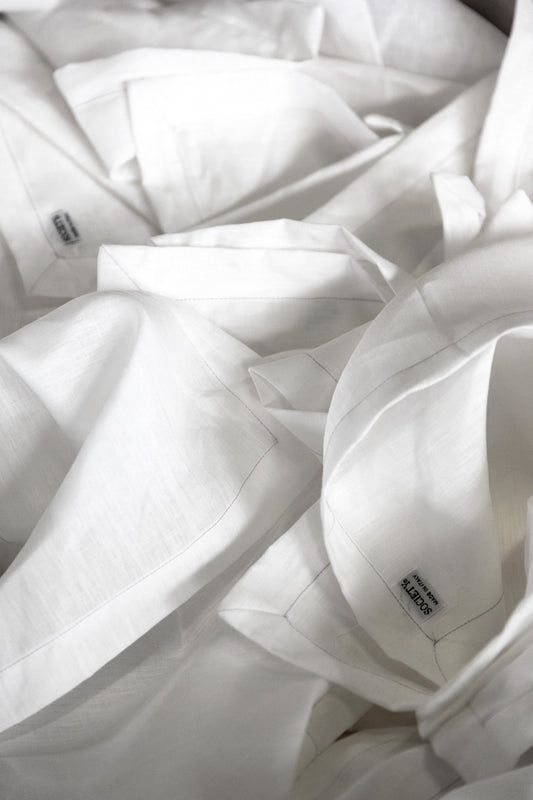
Made in Limonta
In a world in which the delocalisation of production processes is inevitable, Society Limonta is unique in that it is part of a supply chain that is not just Made in Italy but actually 'Made in Limonta'. The Limonta Group was created in 1893 in Costa Masnaga, near Lecco, in one of the main Italian textile regions. During its over 100 years in business the company became one of the most prestigious Italian textile companies.
How product is born
PRODUCTION
From the verb to weave
The path from 'theory to practice' means working with our looms. The actual creation of a textile requires the selection of the finest yarns and research into styles, material and workmanship.
Garment Dyeing
Take care from start to finish
Choosing such a refined procedure is merely the last step in a process that pays attention to every last detail. Garment dyeing has the particular feature of enabling the creation of absolutely unique products in terms of nuances of colour.
BRAND EQUITY
Producing sustainably
Society Limonta has focused on environmental concerns in its production for years. Our collections are made using electricity generated through photovoltaic panels and in order to reduce our energy consumption our heating requirements are satisfied by high-efficiency energy recovery systems that guarantee yields of close to 100%.
CARE INSTRUCTIONS
10 Basic rules
-
Carefully follow the instructions on the label of each product.
-
Always wash separately dark and intense colours from white and light ones.
-
Do not overload the washing machine. When washing delicate garments, do not load the washing machine over 1/3 of its capacity.
-
You can wash the garment at 60° to remove tough stains; washing garments at high temperatures too frequently degrades colours more quickly.
-
On tough stains you can use a liquid stain remover without bleach or optical brightener. Leave it to rest for 10 minutes without rubbing and wash in the washing machine.
-
Wine stains must be treated as quickly as possible with acetic acid, by putting some drops of white vinegar (or lemon) on the stain.
-
Limit the amount of washing liquid (one teaspoon - 5gr per every kilo of laundry) and always use detergents without bleach or optical brightener.
-
To improve the absorbency of your towels, do not use softener.
-
In order to maintain the original look and feeling, hang your garments to dry and steam iron them without pressing.
-
Hand washing is not recommended.
Fabric
Product care


Linen (more than 50%)
#Linen #Linen/Cotton Fabric: Linen is one of the thinnest threads, highly resistant to weaving and high temperatures. This natural fibre is deriv...
Read moreSociety Limonta
Society Limonta dresses up your home with passion and care, creating infinite combinations of materials and colours for the bedroom, the dining table and the bathroom.










